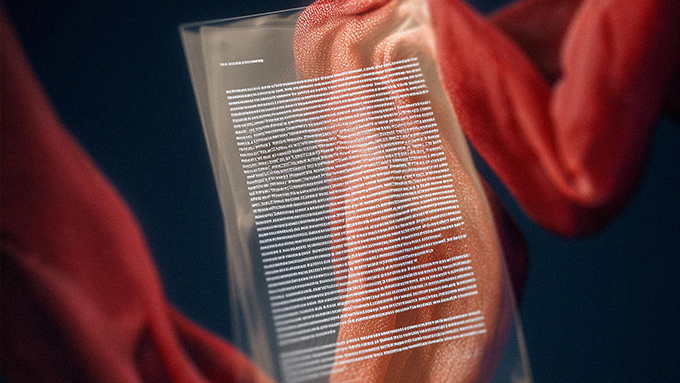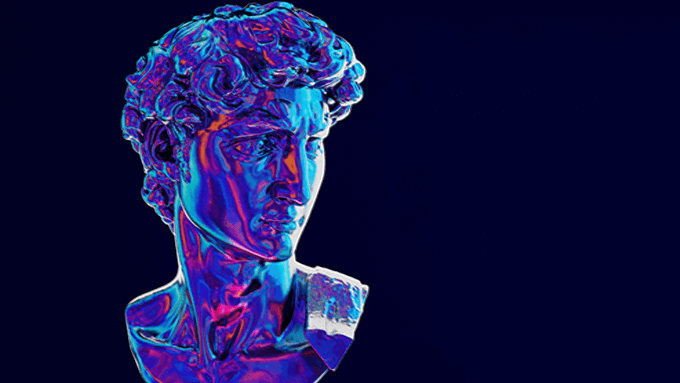Rights of Owners in Their Intellectual and Artistic Works
The rights of authors of intellectual and artistic works are regulated under the Law on Intellectual and Artistic Works No. 5846 (“Law No. 5846”). The purpose of Law No. 5846 is to establish and protect the moral and financial rights on the products of authors who create intellectual and artistic works in the fields of science and literature, music, fine arts or cinema; to regulate the conditions of exploitation of such products and to determine the sanctions for exploitation in breach of the related rules and procedures.
Work
A work is an intellectual and artistic work that bears the traits of its author and which can be considered a work of science and literature, music, fine arts or cinema.
The principle of numerus clausus is valid for the types of works covered in Law No. 5846. This means that the produced product must be included in one of the types of works enumerated under Law No. 5846.
On the other hand, there is a dispute among academics with respect to some intellectual products which cannot be directly included within the types of works under the provisions of Law No. 5846. For example, competition TV shows or any developed method[1].
Owner of a Work
The owner of a work is defined in the Law No. 5846. The owner of a work is the real person who creates the work. Therefore, publishers, producers and legal persons are not acknowledged as owners[2].
The owner of an adaptation and collection is the person who has made the adaptation, provided that the rights of the original owner are reserved. For cinematographic works; the director, the composer of the original music and the scriptwriter are joint authors of the work. For cinematographic works which are produced with the animation technique, the animator is also regarded as the joint author of the work.
Pursuant to Article 18 of the Law No. 5846, the authority to exercise economic rights belongs exclusively to the author. Any producer or publisher of a work may only exercise financial rights on the condition that he has concluded an agreement with the author of the work.
Also, more than one person can be the author of a work. When a work which is created by more than one person can be divided into parts, each person shall be deemed the owner of the part which he has created. However, when a work which is created by the participation of more than one person constitutes an indivisible whole, the union of the persons who has created it shall be deemed the author of the work. The provisions of ordinary partnership prevails in the union of authors, therefore the authors have joint ownership on the work.
Rights of the Owner of a Work
An owner has economic and moral rights that cover the whole and parts of the work.
Moral Rights
The moral rights are stated as per numerus clausus principle from Articles 14 to 17 in section II under the Law No. 5846. The first of them is the author’s right to disclose his work to the public. The author shall exclusively determine whether or not his work shall be disclosed to the public and the time and manner of its publishing. However, the author may prohibit, even if the author has given written approval to others, the promotion to the public or the publishing of both the work and its adaptation, where the manner of disclosure to the public or publishing of the work is of such a nature as would damage the honor and reputation of the author.
Second, the author has the authority to designate the name. The author shall have the exclusive authority to decide whether the work shall be disclosed to the public or published with or without the name of the author or under a pseudonym. However, when the creator of the work is under dispute or any person claims to be the real author of the work, the real author of a work may request to establish his right from the Civil Courts for Intellectual and Industrial Property Rights.
Third, no modifications may be made to a work or to the name of its owner without the owner’s consent.
Fourth, the original author has rights against persons who own or possess a work. Where the work is in a single original form, the original author may request to use the work in retrospectives and exhibitions covering all of his working periods, subject to conditions of protection, and provided that it will be returned to the owner.
Financial Rights
The owner of a work has financial rights and authorities on the work and shall exclusively use them. The rights in works created by civil servants, employees and workers during the execution of their duties shall be exercised by the persons who employ or appoint them. This rule is valid for the organs of the legal persons. The producer or publisher of a work may exercise the economic rights in accordance with a contract to be concluded with the author.
The types of financial rights the author may exercise are disclosed in section III under the Law No. 5846. The first financial right of an author is the right to exploit a work by adapting it. Second, the author may exclusively reproduce the original or copies of a work in any form or by any method, in whole or in part, directly or indirectly, temporarily or permanently.
Third, the author may exclusively rent, lend, put up for sale or distribute in any other way, the original or copies of a work. Also, the author has the exclusive right to import copies of a work that have been reproduced abroad with his permission and to exploit such works by distribution.
Fourthly, the right to exploit a work by performing it in such ways as reciting, playing, acting or displaying it on public premises either directly or by means of devices enabling the transmission of signs, sounds or images belongs exclusively to the author. Also, the right to transmit the performance, from the premises where the performance to the public took place to any other location by means of a technical device also belongs to the author.
Fifth, the author shall have the exclusive right to communicate the original of a work or its copies to the public by way of broadcasting through organizations that broadcast by wire or wireless means such as radio and television, satellite or cable, or by devices enabling the transmission of signs, sounds and/or images, including digital transmission, or by way of re-broadcasting via other broadcasting organizations that obtain the work from such broadcast.
Duration of Rights of the Owner of a Work
The economic rights of the author have a limited duration. Excluding the circumstances disclosed under Articles 46 and 47 of the Law No. 5846 (states’ authority to benefit and expropriation) everyone may benefit from the economic rights of the owner after the expiry of the protection period.
Except to the extent stated in the law, the protection period shall last the entirety of the real person owner’s life-time and continues for 70 years after their death. In the event there is more than one author, this period shall end upon the expiry of 70 years after the death of the last remaining author.
The moral rights of the author have no limitation. Therefore, the 70-year protection period after the author’s death applied to financial rights is not applied to moral rights.
Conclusion
The rights of the authors or owners of intellectual and artistic works are regulated under the Law No. 5846. An intellectual and artistic work bears the characteristics of its owner who is deemed to be a real person, yet legal persons are not regarded as the author of a work under the Turkish legal system. An author has economic and moral rights consisting of the whole and parts of their created work. While the economic rights of the author have an expiration date, their moral rights do not.
- Please see. TEKİNALP, Ünal, Fikri Mülkiyet Hukuku, 5th Ed., 2012, p. 110.
- Please see. TEKİNALP, Ünal, Fikri Mülkiyet Hukuku, 5th Ed., 2012, p. 143.
All rights of this article are reserved. This article may not be used, reproduced, copied, published, distributed, or otherwise disseminated without quotation or Erdem & Erdem Law Firm's written consent. Any content created without citing the resource or Erdem & Erdem Law Firm’s written consent is regularly tracked, and legal action will be taken in case of violation.
Other Contents

Although trademark protection grants the proprietor strong and exclusive rights, its continuation is contingent upon the trademark being genuinely and functionally used in commercial life. Article 9 of the Industrial Property Code No. 6769 (“IPC”) authorizes the cancellation of a registered trademark where…

The Law on Intellectual and Artistic Works No. 5846 (“LIAW”) conditions the recognition of an intellectual product as a “work” (eser) under the LIAW—and thus its protection—on two fundamental criteria: the intellectual product must fall within one of the categories of works explicitly enumerated in the LIAW and bear...

In today's competitive business environment, the protection of trademarks plays a vital role in maintaining the competitive advantage of businesses and ensuring consumer trust. In this context, the protection of well-known trademarks is of particular importance in preserving the commercial value and reputation of...

It is observed that there are changes in the legislation and judicial decisions as to whether the use of a previously registered trademark or a trademark for which a registration application has been filed can be considered as trademark infringement by third parties by using the trademark as a trade name...

Today, the globalization of economic activities leads to the transfer of numerous personal data internationally during the daily operations of companies. Therefore, like many national and international data legislations, Law No. 6698 on the Protection of Personal Data (“PDPL” or “Law”) includes protective...

The relationship between the author and the product of their creative activity is protected by moral rights. The moral rights of the author set out in the Intellectual and Artistic Works Act numbered 5846 (“IAWA”) include the authority to disclose the work to the public, the authority to designate the name...

The Court of Cassation has evaluated the criteria related to the similarity of the trademark in all of these decisions, and while showing how the criteria will be applied, it has also helped to determine the boundaries of the term “likelihood of confusion”. In this article, four different 2022 decisions...

The right to property, which is one of the concepts and values underlying the liberal economic and legal system, regulates the ownership relationship between the person and goods. The scope of the term “goods,” which is the subject of the concept of property...
















